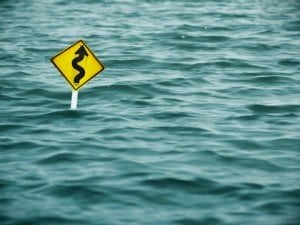
Today our thoughts are with all of our friends, family and loved ones on the South Coast who are facing astronomical damages by Hurricane Laura. We hope that the people in Laura’s path are taking precautions and staying safe. For the rest of us, all we can do is watch and wait.
Hurricane Laura Reminds us to be Prepared
As we keep our fellow Americans in our hearts, our empathy leads us to wonder what we would do in a similar emergency situation. Are you and your family prepared for an emergency of the same caliber as Hurricane Laura? Every family should have a plan in place for an emergency or disaster situation, even those of us who reside in the Southwest are not immune to natural disaster.
Prepare a Kit
You should have a disaster kit prepared well in advance. As we have seen, essential supplies such as batteries, bottled water, and first aid kits have been cleaned out of local stores on the east coast. An emergency preparedness kit should contain enough supplies to last your family for at least 72 hours after a disaster strikes. Items you should include in a natural disaster preparedness kit:
- Non perishable food (and a manual can opener in case of power outage).
- At least one gallon of water per person, per day.
- First aid kit.
- Flashlight and extra batteries.
- Moist towelettes and trash bags.
- Whistle to signal for help.
- Battery powered radio.
- Cash.
- Changes of clothing.
- Warm blankets or sleeping bags.
- Fire extinguisher.
- Paper plates, towels and disposable utensils.
Remember that in case of an emergency or natural disaster you may not have time to collect or shop for all the items that you may need. Keep the individual needs of your family in mind. Will the kids need toys and games? Do you have a pet who will need extra food? Do you have extra diapers and formula if you have an infant child?
Family Communications Plan
When a disaster strikes, you may not be in your home or with your family. Design a plan that works for your family. Make sure your children know emergency contact numbers. Everyone should have emergency contact information written down in case cell phones are lost or damaged. Teach your children to use text messages if cellular towers are not working. Often, text messages will eventually get through. Additionally, identify a relative or friend who lives out of state as a contact person. In case of separation all members of the family should make contact with that person so even if you cannot be together, you will know that everyone is okay.
Secure Your Property
Determine in advance how you will secure your property if you have time to before an emergency or natural disaster. You should consider things like boarding up your windows, reinforcing the garage door, covering your roof and installing generators. Your home owners insurance company should be able to provide you with area-specific tips to secure your home and prevent damage to your property during natural disasters. Everyone should also inquire about flood insurance.
Plan an Escape
You and your family should be familiar with local emergency protocols. What routes are safe to use during a natural disaster? Where is the nearest shelter to your home, school or work facilities? If you live in a high rise building you should plan to take shelter below the tenth floor. Learn about your surroundings. Is your home likely to flood? Are there hazards nearby that you need to be aware of? Determining these things in advance and knowing what to do will help everyone to stay calm in an emergency situation.
During a Natural Disaster
If there is a natural disaster occurring or one expected to occur, bring in any objects that are not secured, such as trash cans and patio furniture. Keep an eye on the local news. Ensure a water supply by filling up bathtubs and clean toilets for sanitary purposes. Turn your refrigerator to the coldest setting and leave it closed as much as possible to preserve perishable food in case of power outage. Turn off propane tanks.Other people may be stranded and phones lines may be hard to secure. Use the phone only in cases of dire need and keep the phone call as short as possible. Keep all curtains and blinds closed, close the doors, and seek shelter in a small room at the interior of your home.
When to Evacuate
Most importantly, if you are instructed to evacuate your home by the authorities, please do so if you are able. You should also evacuate under any circumstance if you live in a mobile home or other unsecured or temporary structure, a high rise building, or if you live on a known flood plane. Nobody wants to believe that they will ever be involved in a natural disaster. But we should all hope for the best and prepare for the worst.
Please visit ready.gov for more information on your area, and what kind of natural disaster you may encounter based on your geographic location. More specific information will also be available there on how to prepare for earthquakes, wildfires, tornadoes, extreme weather or temperature changes, floods and / or ice or wind storms.
Contact us today for more tips.
Our office hours range from 8:00 a.m.-5:00 p.m., Monday through Friday, and we also answer our phones at 844-977-1900 24/7. You can reach us through our online form or our LiveChat service. So don’t wait!
The information on this blog is for general information purposes only. Nothing herein should be taken as legal advice for any individual case or situation. This information is not intended to create, and receipt or viewing does not constitute, an attorney-client relationship.